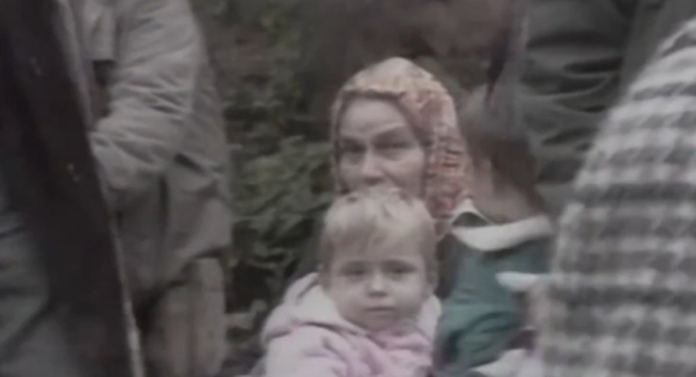Prosecutors in Milan have opened a formal investigation into disturbing allegations that wealthy individuals from Western countries, including Italy, paid substantial fees to participate in “sniper safaris” during the 1992-1995 siege of Sarajevo.
These claims suggest that participants paid Bosnian Serb forces to shoot at civilians, including women and children, for personal amusement.
The investigation was initiated following a complaint filed by Italian investigative journalist Ezio Gavazzeni, who alleges that groups of affluent foreigners traveled to Sarajevo in the 1990s to engage in murder tourism.
According to Gavazzeni, the “sniper tourists” paid up to €80,000 (approximately $90,000) for the opportunity to fire at unarmed residents risking their lives in the besieged city.
The foreign murderers allegedly had to pay extra to shoot children.
The allegations center on the infamous “Sniper Alley” in Sarajevo, a main boulevard during the war where Bosnian Serb snipers targeted civilians, making it one of the most dangerous areas in the city. The siege, part of the broader Bosnian War, resulted in over 11,000 deaths in Sarajevo alone, including more than 1,500 children.
Gavazzeni emphasized that the motivations were not political or religious but stemmed from a desire for thrill and personal satisfaction, comparing the participants to gun enthusiasts who frequent shooting ranges or African safaris.
“We are talking about people who love guns who perhaps go to shooting ranges or on safaris in Africa,” Gavazzeni wrote of the tourists in his 17-page report.
The journalist said the murder tourists came from many different countries, including the United States.
BBC reported, “Similar allegations about ‘human hunters’ from abroad have been made several times over the years, but the evidence gathered by Gavazzeni, which includes the testimony of a Bosnian military intelligence officer, is now being examined by Italian counter terrorism prosecutor Alessandro Gobbis.”
The report adds:
The Bosnian officer apparently revealed that his Bosnian colleagues found out about the so-called safaris in late 1993 and then passed on the information to Italy’s Sismi military intelligence in early 1994.
The response from Sismi came a couple of months later, he said. They found out that “safari” tourists would fly from the northern Italian border city of Trieste and then travel to the hills above Sarajevo.
“We’ve put a stop to it and there won’t be any more safaris,” the officer was told, according to Ansa news agency. Within two to three months the trips had stopped.
Gavazzeni first heard of the safaris through Italian media reports in the 1990s but pursued them further after viewing a 2022 documentary on the Bosnian War. His primary source is a former Bosnian intelligence officer, whose accounts form the basis of the complaint. The journalist is collaborating with two experienced lawyers who specialize in international cases to support the investigation.
The Bosnian Consulate in Milan told The New York Post that it will cooperate with the probe.
“We are impatient to discover the truth about such a cruel matter in order to close a chapter of history. I am in possession of certain information I will be sharing with the investigators,” the spokesperson said.



